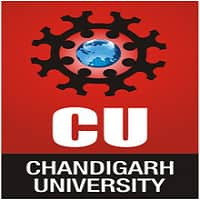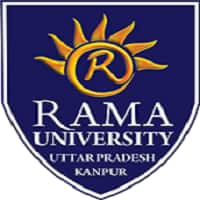Doctor of Pharmacy (Pharm.D) is a professional six-year degree in clinical pharmacy. Introduced in 2008 by the Pharmacy Council of India, the programme was designed to strengthen hospital and clinical pharmacy education in the country. It is the only pharmacy course in India that directly prepares students for roles in patient care and pharmacy practice.
This Story also Contains
- What is Pharm.D Full Form?
- Doctor of Pharmacy Course Details- Highlights
- Course Duration of Pharm.D
- Why Choose Pharm.D?
- Pharm.D Eligibility Criteria
- Skills Required for Pharm.D Degree
- Pharm.D Admission Process
- Pharm.D Course Fees Structure
- Pharm.D Entrance Exams
- Pharm.D (Doctor of Pharmacy) Cut off
- Pharm.D (Doctor of Pharmacy) Syllabus
- Pharm.D Specialisations
- Scope after Pharm.D (Doctor of Pharmacy)
- Career Opportunities in Pharm.D (Doctor of Pharmacy)
- Average Salary after Pharm.D (Doctor of Pharmacy) Degree
- Pharm.D Employment Areas
- Top Private Pharm.D Colleges in India
- Top Government Pharm.D Colleges in India
The Pharm.D course includes five years of academic learning followed by one year of internship or clinical training in hospitals. This internship focuses on specialisation areas such as paediatrics, general medicine and surgery, giving students hands-on experience in real healthcare settings. The curriculum also covers pharmacology, pharmaceutical chemistry, clinical research, and drug therapy monitoring.
Eligibility for Pharm.D requires students to pass 10+2 with Physics, Chemistry, Biology, or Mathematics. Those interested in the Pharm.D (Post Baccalaureate) must complete a B.Pharm degree from a PCI-approved institution. The post-baccalaureate version is a three-year course, with two years of classroom training and one year of hospital-based internship.
East Point College | B.Pharm Admissions 2025
NBA Accredited | AICTE Approved | Application Closing Soon!
Sanskriti University M.Pharma Admissions 2025
Best innovation and research-driven university of Uttar Pradesh
What is Pharm.D Full Form?
Pharm.D stands for Doctor of Pharmacy, a doctoral-level qualification in the field of pharmaceutical sciences. Unlike general pharmacy degrees, it focuses on clinical pharmacy, hospital practice, and direct patient care. Recognised by the Pharmacy Council of India, it prepares students to work closely with healthcare professionals in real-world medical settings.
Doctor of Pharmacy Course Details- Highlights
The Doctor of Pharmacy (Pharm.D) is a postgraduate degree in healthcare for those who have passed 10+2 with Physics, Chemistry, Biology, and Mathematics. It offers roles like pharmacist and biochemist with top recruiters in the pharmaceutical industry. Here are some key highlights like course duration, fee, average salary, and eligibility.
| Particulars | Details |
|---|
Course Name | Pharma.D |
Pharm.D Full Form | Doctor of Pharmacy |
Type | Degree |
Pharm.D Level | Post Graduate |
Pharm.D Field | Healthcare |
Pharm.D Eligibility | 10+2 with Physics, Chemistry, Biology, and Mathematics |
Pharm.D Duration | Pharm.D: 6 years Pharm.D (Post Baccalaureate): 3 years |
Pharm.D Average Fee | Rs. 20,000 to Rs. 25 Lkahs |
Pharm.D Average Salary | Rs. 5 LPA |
Pharm.D Career Opportunities | Pharmacist, Chemist, Biochemist |
Pharm.D Top Recruiters | Cipla, Reddy’s Laboratories, Lupin, Sun Pharmaceutical Ltd, Aurobindo Pharma, Zydus Cadila, GlaxoSmithKline, Johnson & Johnson |
Course Duration of Pharm.D
The Doctor of Pharmacy (Pharm.D) course is a comprehensive programme that typically spans six years. This includes five years of academic study, followed by one year of hands-on internship or residency training in a clinical setting. The course duration of Pharma.D (Post Baccalaureate) is three years, with two years of academic study and one year of compulsory internship.
Why Choose Pharm.D?
The Pharm.D course provides students with in-depth knowledge of clinical pharmacy, focusing on diagnosing and treating diseases through medicinal drugs. Graduates can pursue various careers in healthcare, including roles in medical coding, billing, pharmaceutical companies, and health insurance, offering promising job opportunities in the growing healthcare sector.
Pharm.D Eligibility Criteria
The eligibility criteria for the Pharm.D course vary depending on the type of programme. To be eligible for admission, candidates need to meet specific educational requirements set by the Pharmacy Council of India. Below are the steps to qualify for the Doctor of Pharmacy programme:
For Pharm.D (Regular): Candidates must have passed 10+2 with Physics, Chemistry, and Biology/Mathematics as compulsory subjects from a recognised board.
For Pharm.D (Post Baccalaureate): Candidates must have completed a B.Pharm degree from an institution approved by the Pharmacy Council of India.
For D.Pharm Holders: Students who have completed the D.Pharm course from a Pharmacy Council of India-approved institution are also eligible for admission to the Pharm.D degree programme.
Parul University B.Pharma Admissions 2025
Registrations Deadline- 05th July | India's youngest NAAC A++ accredited University | NIRF rank band 151-200 | 2200 Recruiters | 45.98 Lakhs Highest Package
Skills Required for Pharm.D Degree
Candidates aspiring to pursue a Pharm.D course should maintain a combination of technical and soft skills, including strong communication, time management, and analytical abilities. Below are the basic skills needed to succeed in the Pharm.D programme:
Communication Skills: Ability to effectively communicate with patients, healthcare providers, and colleagues.
Mathematical Skills: Strong understanding of pharmacokinetics and dosage calculations.
Leadership Qualities: Ability to manage teams and supervise pharmacy operations.
Organisational Skills: Competence in managing clinical pharmacy practices and improving operational efficiency.
Pharm.D Admission Process
The admission process for Pharm.D courses may vary across universities and institutions, but typically, candidates must meet certain eligibility criteria. Most universities consider the GPAT (Graduate Pharmacy Aptitude Test) scores or other relevant entrance exams for admission.
Here is an overview of the admission process:
Eligibility: Candidates must have completed 10+2 with Physics, Chemistry, and Biology/Mathematics as compulsory subjects. For Pharm.D (Post Baccalaureate), a Bachelor's degree in Pharmacy (B.Pharm) is required.
Entrance Exam: Students must apply and appear for the GPAT or any other entrance exam specified by the university offering the Pharm.D programme.
Counselling and Interview: After the entrance exam, candidates may undergo a counselling session and a personal interview process.
Document Verification and Fee Payment: Once selected, students are required to verify their documents and complete the fee payment process to confirm their admission.
Pharm.D Course Fees Structure
The fees for the Pharm.D course can vary widely depending on whether the institution is public or private. On average, government institutions charge lower fees, typically ranging from Rs. 1.5 lakh to Rs. 5 lakh for the entire six-year programme. In comparison, private institutions tend to have higher fees, with charges ranging from Rs. 3.5 lakh to 15 lakh.
Students should always verify the fee structure with the specific college or university they are interested in, as it can differ based on location, facilities, and other factors. Candidates can visit the official website of the university/college to find the fees and other relevant information regarding the course.
Pharm.D Entrance Exams
Admission to Pharm.D courses in India is often based on entrance exams conducted at the national or university level. These exams test candidates on subjects like pharmacy, biology, and general aptitude. Here are some entrance exams that students can appear for to get admission into Pharm.D programmes.
Pharm.D (Doctor of Pharmacy) Cut off
The cut-off for Pharm.D (Doctor of Pharmacy) courses varies based on the category and the institution offering the programme. Most colleges and universities either follow merit-based admissions or consider GPAT (Graduate Pharmacy Aptitude Test) scores for selecting candidates.
These cut-offs can differ each year, depending on factors like the number of applicants, the difficulty level of entrance exams, and seat availability. Here are the cut-offs for the year 2024 :
Category | Cut-off Percentile |
UR | 96.15414 |
UR-PwBD | 55.1562 |
EWS | 90.7069 |
EWS-PwBD | 46.32063 |
OBC | 90.09176 |
OBC-PwBD | 49.70896 |
SC | 75.4353 |
SC-PwBD | 45.53011 |
ST | 54.17503 |
ST-PwBD | 52.27117 |
Pharm.D (Doctor of Pharmacy) Syllabus
Doctor of Pharmacy is a six-year programme, divided into five years of academics with one year of internship or residency training, including postings in speciality units. Below, we have mentioned the Pharma.D syllabus recommended by the Pharmacy Council of India.
Pharm.D First Year Syllabus
The first year of the Pharm.D programme builds a strong base in core pharmaceutical sciences. Subjects like anatomy, biochemistry, and pharmaceutics help students understand the human body, drug formulation, and chemical interactions. This year lays the groundwork for advanced study and clinical application in the coming semesters.
Human Anatomy and Physiology
Pharmaceutics
Medicinal Biochemistry
Pharmaceutical Organic Chemistry
Pharmaceutical Inorganic Chemistry
Remedial Mathematics/ Biology
Pharm.D Second Year Syllabus
The second year of the Pharm.D programme delves deeper into the science behind drug action and disease management. Subjects like pathophysiology, pharmacology, and pharmacognosy help students understand how medications affect the body and how they can be used effectively in treating various health conditions.
Pham.D Third Year Syllabus
The third year of the Pharm.D programme focuses on advanced pharmaceutical sciences, including pharmacology, medicinal chemistry, and drug formulations. Students gain a deeper understanding of drug mechanisms, legal aspects of pharmacy, and the practical application of pharmaceutical formulations, preparing them for more specialised roles in the healthcare industry.
Pham.D Fourth Year Syllabus
In the fourth year of the Pharm.D programme, students delve into advanced clinical topics such as pharmacotherapeutics, hospital pharmacy, and clinical toxicology. This year focuses on biostatistics, research methodologies, and pharmacokinetics, improving students' ability to apply their knowledge in clinical environments and improve patient care through evidence-based practices.
Pharm.D Fifth Year Syllabus
The fifth year of the Pharm.D programme focuses on practical application and research in clinical environments. Students engage in clinical research, pharmacoepidemiology, and pharmacoeconomics. The year includes a hands-on clerkship and a six-month project work, providing valuable experience in drug monitoring, therapeutic evaluation, and real-world clinical practice.
Clinical Research
Pharmacoepidemiology and Pharmacoeconomics
Clinical Pharmacokinetics & Pharmacotherapeutic Drug Monitoring
Clerkship
Project work (Six Months)
Pharm.D Sixth Year Syllabus
The sixth year of the Pharm.D programme offers extensive practical exposure in clinical environments. Students spend six months in the General Medicine department, followed by two months each in three speciality departments. This hands-on training improves their clinical skills, preparing them for real-world challenges in pharmaceutical practice.
Six months in the General Medicine department
Two months each in three other speciality departments
Human Anatomy and Physiology
Pharmaceutics
Medicinal Biochemistry
Pharmaceutical Organic Chemistry
Pharmaceutical Inorganic Chemistry
Remedial Mathematics/ Biology
Pharm.D Specialisations
Pharm.D (Doctor of Pharmacy) is a six-year-long degree programme and is the only doctoral degree that can be pursued just after 10+2. Below, we have mentioned the specialisation of the Pharm.D course, which students can choose while pursuing the Pharm.D course.
Scope after Pharm.D (Doctor of Pharmacy)
The scope after completing the Pharm.D course is broad, offering opportunities in both clinical and research domains. Graduates can pursue higher education degrees, such as a Ph.D. There is also a growing demand for skilled Pharm.D professionals abroad, especially in countries like the US, UK, and Australia.
With the rise in healthcare awareness and the growth of pharmaceutical services in India, Pharm.D graduates play an important role in ensuring effective medication therapy management alongside doctors and healthcare providers.
Career Opportunities in Pharm.D (Doctor of Pharmacy)
Pharm.D graduates have a wide range of career options in hospitals, pharmaceutical companies, research centres, and regulatory agencies. This degree provides students with clinical and practical knowledge to work as drug experts. Some of the top job roles after completing Pharm.D are listed below with good salary potential:
- Drug Inspector: Drug inspectors are qualified professionals who supervise the manufacturing of medical drugs. They monitor the safety, utility, and efficiency of the drug, which has been manufactured before it is sold by the chemists. Drug inspectors' primary responsibility is to ensure the quality of the drug.
- Health Inspector: Health inspectors investigate various drugs that are harmful for human consumption. They eliminate any drugs that might prove harmful for use by human beings. Health inspectors check the complaints and other health concerns, they also keep a close eye on the harmful and expired drugs.
- Pharmacist: Pharmacists provide medicine or drugs that are prescribed by doctors. They help patients by suggesting how to consume medicine. Pharmacists also check and review the manufactured drugs and recommend proper drugs and other necessary diet plans.
- Clinical Research Associate: Clinical Research Associates are responsible for overseeing and managing clinical trials to test new drugs and treatments. They ensure that trials are conducted ethically and meet all regulatory guidelines. CRAs also collect and analyse data from these trials and report on the drug’s effectiveness and side effects.
- Pharmacovigilance Officer: Pharmacovigilance Officers play an important role in monitoring and assessing the safety of medicines after they have been released in the market. Their main responsibility is to identify, evaluate, and report adverse drug reactions. It plays an essential role in maintaining the effectiveness and safety of medications.
Top Recruiters
Cipla
Lupin
Ranbaxy
GlaxoSmithKline
Johnson & Johnson
Reddy’s Laboratories
Sun Pharmaceutical Ltd
Glenmark Pharmaceuticals
Average Salary after Pharm.D (Doctor of Pharmacy) Degree
The salary of Pharm.D graduates depends on their experience, skills, and educational qualifications. Graduates can earn a good salary after pursuing a Pharm.D (Doctor of Pharmacy) degree programme. Below, we have mentioned the average salary after the Pharm.D course:
| Job Roles | Average Salary |
|---|
Drug Inspector | Rs. 10 LPA |
Health Inspector | Rs. 3.4 LPA |
Pharmacist | Rs. 2.7 LPA |
Clinical Research Associate | Rs. 4.5 LPA |
Pharmacovigilance Officer | Rs. 3.8 LPA |
Source: AmbitionBox
Pharm.D Employment Areas
Pharm.D (Doctor of Pharmacy) graduates can find job opportunities in both the government and private sectors. They are hired in various roles related to medicine, healthcare, and research. Some of the common employment areas for Pharm.D graduates include:
Top Private Pharm.D Colleges in India
Several private colleges in India offer Pharm.D courses. Private Pharm.D colleges are usually more expensive than government Pharm.D colleges. Below, we have mentioned some of the top private Pharm.D colleges along with the fee structure.
| Top Colleges | Fees |
|---|
JSS College of Pharmacy, Ooty | Rs. 17.66 Lakhs |
JSS College of Pharmacy, Mysore | Rs. 21 Lakhs |
Manipal College of Pharmaceutical Sciences, Manipal | Rs. 25.50 Lakhs |
Chitkara University Chandigarh, Patiala | Rs. 15.60 Lakhs |
ISF College of Pharmacy, Moga | Rs. 6.36 Lakhs |
Poona College of Pharmacy, Bharati Vidyapeeth University, Pune | Rs. 10.50 Lakhs |
Dr D.Y. Patil Institute of Pharmaceutical Sciences and Research, Pune | Rs. 7.50 Lakhs |
Integral University, Lucknow | Rs. 9.60 Lakhs |
Sri Venkateswara College of Pharmacy, RVS Nagar | Rs. 5.80 Lakhs |
Sharda University, Greater Noida | Rs. 25.06 Lakhs |
Top Government Pharm.D Colleges in India
There are also several government colleges in India that offer Pharm.D courses. Students can pursue Pharm.D (Doctor of Pharmacy) degree programmes from these government Pharm.D colleges at an affordable cost. Government colleges are popular for delivering high academic standards across India. The table below lists some of the best government Pharm.D (Doctor of Pharmacy) colleges along with their fee structure.
| Top Colleges | Fees |
|---|
Andhra University College of Pharmaceutical Sciences, Visakhapatnam | - |
Annamalai University, Annamalai Nagar | Rs. 1.87 Lakhs |
Department of Pharmaceutical Sciences, Saurashtra University, Rajkot | Rs. 1.50 Lakhs |
JNTUA Oil Technological and Pharmaceutical Research Institute, Ananthapuramu | - |
KUHS Thrissur, Thrissur | Rs. 11.64 Lakhs |
Government College of Pharmacy, Amravati | Rs. 2.42 Lakhs |
Government College of Pharmacy, Aurangabad | - |
Saurashtra University, Rajkot | Rs. 25,000 |
DBRAU Agra, Agra | Rs. 8.40 Lakhs |
Pharm.D (Doctor of Pharmacy) is a professional doctoral degree that prepares graduates to play an important role in the healthcare industry. They support pharmacists by assisting in prescription preparation, providing problem-solving skills, and contributing to the efficient operation of pharmacies.





